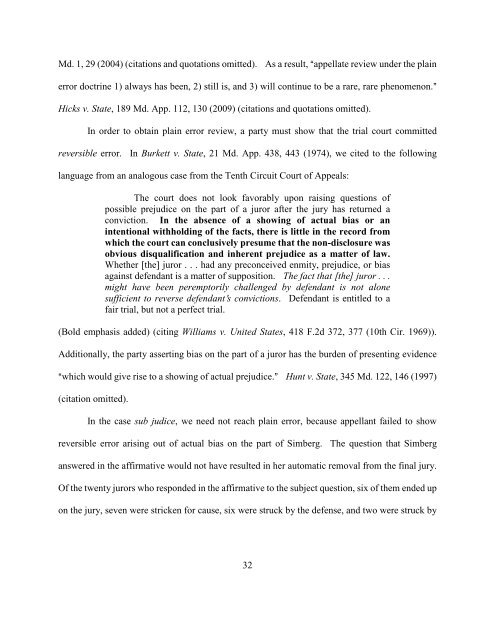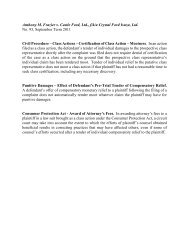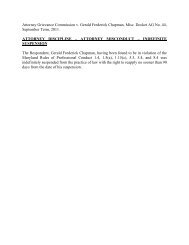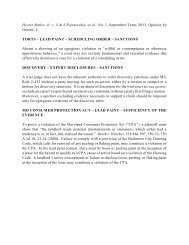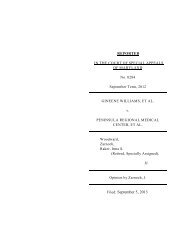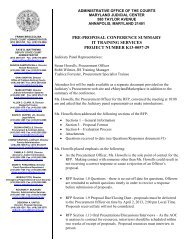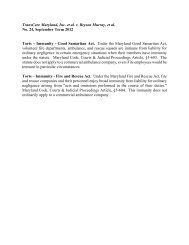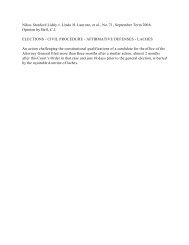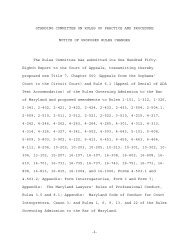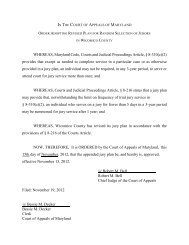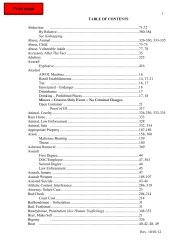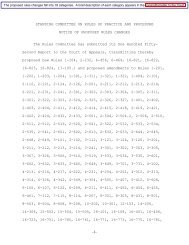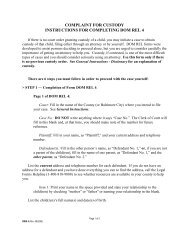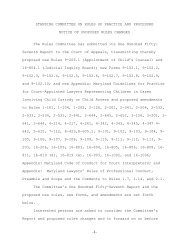2842/09 - Maryland Courts
2842/09 - Maryland Courts
2842/09 - Maryland Courts
You also want an ePaper? Increase the reach of your titles
YUMPU automatically turns print PDFs into web optimized ePapers that Google loves.
Md. 1, 29 (2004) (citations and quotations omitted). As a result, Aappellate review under the plain<br />
error doctrine 1) always has been, 2) still is, and 3) will continue to be a rare, rare phenomenon.@<br />
Hicks v. State, 189 Md. App. 112, 130 (20<strong>09</strong>) (citations and quotations omitted).<br />
In order to obtain plain error review, a party must show that the trial court committed<br />
reversible error. In Burkett v. State, 21 Md. App. 438, 443 (1974), we cited to the following<br />
language from an analogous case from the Tenth Circuit Court of Appeals:<br />
The court does not look favorably upon raising questions of<br />
possible prejudice on the part of a juror after the jury has returned a<br />
conviction. In the absence of a showing of actual bias or an<br />
intentional withholding of the facts, there is little in the record from<br />
which the court can conclusively presume that the non-disclosure was<br />
obvious disqualification and inherent prejudice as a matter of law.<br />
Whether [the] juror . . . had any preconceived enmity, prejudice, or bias<br />
against defendant is a matter of supposition. The fact that [the] juror . . .<br />
might have been peremptorily challenged by defendant is not alone<br />
sufficient to reverse defendant=s convictions. Defendant is entitled to a<br />
fair trial, but not a perfect trial.<br />
(Bold emphasis added) (citing Williams v. United States, 418 F.2d 372, 377 (10th Cir. 1969)).<br />
Additionally, the party asserting bias on the part of a juror has the burden of presenting evidence<br />
Awhich would give rise to a showing of actual prejudice.@ Hunt v. State, 345 Md. 122, 146 (1997)<br />
(citation omitted).<br />
In the case sub judice, we need not reach plain error, because appellant failed to show<br />
reversible error arising out of actual bias on the part of Simberg. The question that Simberg<br />
answered in the affirmative would not have resulted in her automatic removal from the final jury.<br />
Of the twenty jurors who responded in the affirmative to the subject question, six of them ended up<br />
on the jury, seven were stricken for cause, six were struck by the defense, and two were struck by<br />
32


